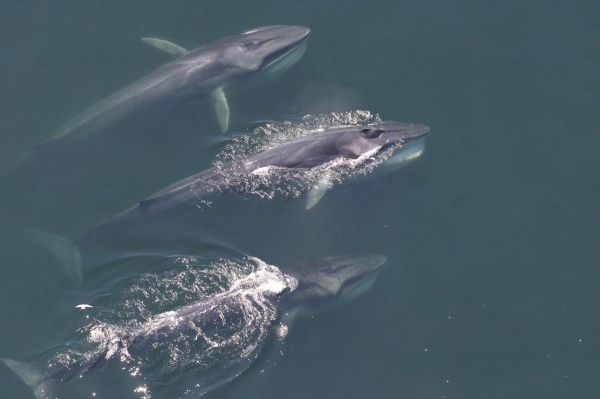Researchers have been using passive acoustic recordings of whale calls to track their movements. They have found that four of the six baleen whale species found in the western North Atlantic Ocean — humpback, sei, fin and blue whales — have changed their distribution patterns in the past decade. The recordings were made over 10 years by devices moored to the seafloor at nearly 300 locations from the Caribbean Sea to western Greenland.
“All four whale species were present in waters from the southeast U.S. to Greenland, with humpbacks also present in the Caribbean Sea,” said Genevieve Davis, a senior acoustician at the Northeast Fisheries Science Center in Woods Hole, Massachusetts and lead author of the study. “These four species were detected throughout all the regions in the winter, suggesting that baleen whales are widely distributed during these months. Humpback, sei, fin, and blue whales also showed significant changes in where they were detected between the two time periods considered in this study: before and after 2010.”
A large group of federal, state and academic researchers from the United States and Canada conducted the study, published in Global Change Biology. It is the first to show the occurrence of these four species across the western North Atlantic Ocean over long time spans and at a large spatial scale. The study also demonstrates how whale distributions have changed over time, and in particular since 2010.
Continue reading at NOAA Fisheries
Image via NOAA Fisheries


